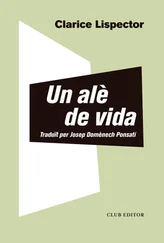They rise from the table. Some of the guests fold their napkins before getting to their feet as they were taught to do as children. Those who just leave them lying there unfolded have a theory about leaving them unfolded.
A cup of coffee is welcome after all that rich food, but the liqueurs begin to mix with the wines imbibed earlier, making the guests feel slightly breathless and hazy. Those who smoke, smoke. Those who do not, do not. But they all smoke. The weary hostess never stops smiling. At long last, the guests take their leave. It is already late. Some of the women return home, their afternoon spoiled. Others decide, since they are all dressed up for the occasion, to visit a friend. Who knows, perhaps to offer their condolences. It’s the same the world over, people eat and people die.
On the whole, the luncheon was perfect. My turn to offer lunch next time? Not on your life.
When they removed the stitches from my hand after they had operated between the fingers, I screamed with pain. I screamed with pain and anger because the pain was an insult to my physical integrity. But I was no fool. I took advantage of my pain and screamed at the past and present. I even screamed at the future, dear God.
A friend of mine who thought Henry James was a marvellous writer suggested that I should start reading his work. Henry James can be hermetic yet at the same time so lucid. In quoting from one of his essays, I hope my readers won’t find me hermetic. That would be most unfortunate. But there are certain things I feel I must express and they are not easy. I suggest you read the following passage several times:
Experience is never limited and it is never complete; it is an immense sensibility, a kind of huge spider’s web of the finest silken threads, suspended in the chambers of consciousness and catching every air-borne particle in its tissue. It is the very atmosphere of the mind; and when the mind is imaginative — more so when it happens to be that of a man of genius — it takes to itself the faintest hints of life, it converts the very pulses of the air into revelations.
Far from being a genius, how many revelations, how many air-borne particles I find myself catching. And that huge spider lurks in the chamber of my consciousness. Ah, how wonderful life is with its ensnaring webs.
Warn me if I start becoming too personal. That is a weakness of mine. But I am also objective. So much so that I can transform those subjective threads of the spider into objective words. Any word, for that matter, is an object and therefore objective. Moreover you may be certain that one does not have to be intelligent: the spider is not intelligent, and as for words, words are inevitable. Do you get my meaning? Never mind. Simply accept what I am offering you. Accept me with silken threads.
Once she started ageing she preferred to remain indoors. I am convinced she actually thought it was in bad taste to be seen out and about after reaching a certain age: the air outside was so fresh and pure, her body so repugnant with its flabbiness and wrinkles. The sea in particular was so clear that it looked naked. Others did not mind her presence in public for everyone accepts that people grow old. But she herself found it distasteful. How anxiously she tried to restore the figure she had lost, distress written in those eyes which were still bright.
Another thing: in the old days her face did not betray her thoughts, only her features were accentuated. Now, when she involuntarily glances at herself in the mirror, she almost cries out in horror: I was thinking no such thing! Although it was impossible and hopeless trying to decide what her expression conveyed, just as it was impossible and hopeless trying to explain what she herself was thinking.
All around her things were fresh, a story was about to unfold, and there was wind, wind … Meanwhile her belly sagged and her legs thickened, and her hair had settled into natural drabness.
I swear to you — the drawing-room was in darkness — but the music drew me to the centre of the room — something was on the alert there — the entire room darkened within darkness — I found myself in shadows — felt that, notwithstanding the darkness, the room was bright — I took refuge in fear — just as I once took refuge in you — and what did I find? simply that light was filling the room without making things any brighter — and that I was trembling amidst this difficult light — believe me, even though I cannot explain it — I am something perfect and fragile — as if I had never seen a flower — and it frightened me to think of that flower as the soul of someone who had just died — and I watched that bright centre which kept moving — and the flower disturbed me as though there were a dangerous bee hovering round it — a bee paralysed with terror before the ineffable beauty of that quivering flower — and then the flower became paralysed before the bee sweetened by the flower it sucked in darkness — believe me, even if I cannot understand — an inevitable ritual was being enacted — the room was filled by a penetrating smile as the shadows began to disperse — no evidence remained — I can offer no proof — I am my only proof — that is all I can tell you about this illness of mine which has landed me in hospital and which others do not understand — I do not know how anyone can be frightened by a rose — they experimented with violets which are somewhat more delicate — but I was afraid — they smelled like flowers in a graveyard — and the flowers and bees are already calling me — I cannot resist their call — I truly desire to go. Do not mourn my death. I have decided what I must do here in hospital. My love, it will not be suicide. I value life much too dearly and therefore would never contemplate suicide. I am going, but in order to become fleeting light, to feel the taste of honey and, if so ordained, to become a bee.
Y with her great wisdom and understanding, trying hard not to be human, in the sense that to be human also means having faults and outbursts of temper. She tries hard to understand by forgiving others. That heart is bereft of me because it expects me to be admirable. Everyone turns to her when they have a problem she, ‘the self-appointed comforter’, understands, understands, understands. But my great pride dictates that I should be found on the street.
It was Saturday and we had been forced into accepting an invitation to dinner. But each of us valued our Saturday evening far too much to waste it on a couple whom we found rather boring. Each of us had experienced happiness at some time or other and been left with the mark of desire. As for me, I desired everything. And there we were, trapped, as if our train had been derailed and we had been left stranded among strangers. No one there loved me and I had no love for them. As for my Saturday — which swayed outside my window amongst acacias and shadows — I preferred to fritter it away, to hold that lost Saturday in my clenched fist and crumple it like a handkerchief. Waiting for dinner to be served, we drank dispiritedly, toasting resentment. The next day would be Sunday. I have no desire to be with you, our dry expression was saying, as we slowly blew smoke from a dry cigarette. The meanness of not sharing our Saturday gradually began to erode and advance like rust to the point where any happiness would have been an affront to greater happiness.
Only the mistress of the household did not appear to prefer to spend her Saturday in better company. She, whose heart had nevertheless known other Saturdays. How could she have forgotten that one wants more and more? She did not so much as lose her patience with this mixed gathering of people, dreamy and resigned, who sat there in her house as if waiting for the first train to leave — any train — rather than remain in that empty station or curb that horse which was straining at the bit in its anxiety to gallop off and join other horses.
Читать дальше












